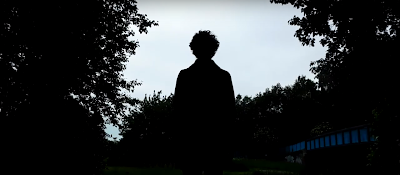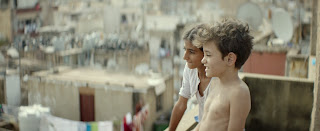First Reformed
First Reformed - The Existential Crisis of the Modern World
Can God forgive us for what we've done to this world?
Our world is dying. Once luscious landscapes are now dantesque nightmares. Is there anything that can be done? How do we stop the machine of greed that is causing this disaster? Is the machine too powerful? What can we do? Is doing anything worth it? Are we in time to prevent the death of our species and most of the others? Right now, we live in what is probably the greatest and worst crisis in the history of humanity, and this crisis is purely man-made - they are a product of the greed of the powerful and wealthy. who care more about the money in their offshore accounts than the health of our planet and its inhabitants. This crisis isn't merely environmental - it's political, moral, and, above all, existential. First Reformed is an urgent wake-up call for all of us. In it, we follow Reverend Ernst Toller, a priest in a small chapel in upstate New York, as he goes through an existential crisis after a traumatic experience. He reflects on our world, our society, and his tormented past. Paul Schrader updates the philosophy presented in Taxi Driver of the cleansing of society, with a poignant and reflective story of faith and the environment.
This is a story of a man in decay on a world in decay. Reverend Ernst Toller - played by Ethan Hawke, in one of the most complex and the best of his performances, which is saying something - is the pastor at the historic First Reformed Church, a small touristy church in upstate New York, which is owned by a "megachurch" corporation. He is writing a journal for the duration of one year as an experiment, a reflection on his life and this world, almost like a prayer - through this we hear his thoughts. One day, a woman, called Mary (the Virgin Mary) - played so vulnerable and brilliantly by Amanda Seyfried, in her best performance so far - goes to talk with Toller. She's worried about her husband, Michael - played by Phillip Ettinger - an environmental activist. He suffers from depression. The Reverend agrees to meet and talk to him. When he meets Michael, he finds a distraught man obsessed with the current environment situation. He is completely hopeless. According to him (and many scientific studies), by 2050 the planet Earth will be unliveable. He has lost hope that anything can be done to prevent such a situation. He wants his wife to abort their child because it wouldn't be fair to bring a child, full of hope and dreams, into such a doomed and futureless world. Who could do such a thing? After this meeting, Toller starts to question himself about this issue, about the ethics of it all.
Reverend Roller is, like Earth, in decadence. He is in pain and has symptoms of a probable stomach cancer. However, he ignores this and only aggravates his health by continuing to drink more and more quantities of alcohol. He is also a man with a traumatic past. Due to a family tradition of joining the military, he convinces his son to join it. However, six months after going to Iraq, his son, called Joseph, dies in combat. This leaves a profound guilt in Toller, who blames himself for sending his son to his death in a pointless war. Because of this, he loses his faith in his capacity for human love, avoiding any intense relationship believing he cannot love anymore. Because of this trauma, he resorts to drinking - and, by extension, self-destruction.
Toller could be seen as an allegory of our world and society. A world in decadence, with obvious symptoms of an environmental crisis, and a society that ignores those symptoms and keeps indulging in selfish vices. A society where profit is a priority, and humanity and love are secondary. An irrational society blinded by money and greed that ignores the rot and decadence of its body and keeps resorting to a system that will only bring forth its own self-destruction.
I would also like to talk about Mary. For Toller, she represents the last remains of innocence and purity on planet Earth. She is an oasis of light in the dark and corrupt modern world. She represents pure and innocent life - an untouched and uncorrupted Earth. She reignites Toller's capacity for human love. He wants to save her from this vile world and with her a part of him he has neglected - his pure and compassionate self. In a mostly dark, grey and white film, Mary brings a whole different life to this magnificent masterpiece.
After finding out that the "megachurch" to which his small church belongs to is funded by the fifth biggest polluter in the world, Toller is thrown into a deep crisis of faith, existence, and guilt. What has he contributed to this hellish future?
And it's not just him, it's all of us. This is one of the most important films to come out in recent years. This film is probably the most important and urgent film in this Era of Trump - a time where empiric and scientific evidence is openly questioned as being hoaxes and lies; an era where corporate interests are put first than democratic and environmental interests. What have we all contributed to this hellish future?
Can Nature forgive us? Or will she punish us? From what we have been seeing in the past recent years, we must act now, because Nature has no scruples. This is a matter of life or death, literally. If we want our beautiful planet and our civilization to continue for many more centuries - and, who knows, millennia - we need to be rational and act now. The clock is ticking, and the last grains of the hourglass are falling. And First Reformed is a wake-up slap from one of the most brilliant minds of our time.
Will you pay attention to the symptoms and act, saving the remaining earthly purity? Or, will you continue to indulge in the temptations of capitalism?




Comments
Post a Comment